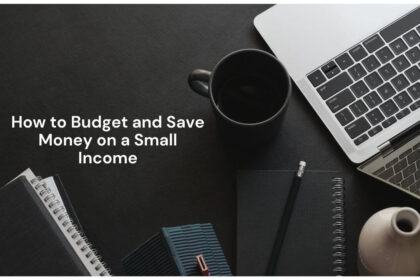It’s easy to spend money on things you don’t need. It’s so easy that most of us don’t even realize we’re doing it. But if you want to start saving more money, the first step is to stop spending money on unnecessary things.
Here are a few tips for how to do just that. It’s no secret that the average person spends a lot of money on unnecessary things.
A recent study showed that the average person spends around $1,600 per year on stuff they don’t need. This can include anything from clothes to gadgets to eating out at restaurants.
So why do we spend so much money on things we don’t need? There are several reasons, but one of the biggest is that we’re not very good at evaluating our spending habits.
We tend to buy things without thinking about them, and we often don’t realize how much money we’re wasting until it’s too late.
But there is hope. You can start saving more money each month by learning how to evaluate your spending habits and cutting out unnecessary expenses.
You can also find creative ways to make extra money, which will help you get closer to your financial goals. Follow these tips, and you’ll be able to save more money in no time!
How to Stop Spending Money on Unnecessary Things
1. Evaluate your spending habits:
If you’re serious about saving money, the first step is to examine your spending habits closely. Do you tend to spend money on unnecessary things? Are there specific areas where you could cut back?
Take a close look at your spending habits and see where you can cut back. Do you buy coffee every day? Pack your lunch instead and save money.
Are you buying new clothes when you don’t need them? Shop at thrift stores or consignment shops to save money on your wardrobe. Evaluating your spending habits can help you find ways to save money each month.
One of the best ways to save money is to cut unnecessary expenses. Do you need that new coffee maker? Or, could you make coffee at home?
2. Make a budget and Stick to it
Making and sticking to a budget is one of the most effective ways to curb your spending. Knowing how much money you have coming in and going out makes it easier to make informed decisions about your spending. If you stick to a budget, you’ll be less likely to overspend and get into debt.
To make a budget, start by calculating your monthly income. Then, list your expenses, including fixed costs (like rent and utilities) and variable costs (like food and entertainment).
Once you know how much money you’re spending each month, you can start making cuts to save money.
If you’re unsure where to start, try cutting back on unnecessary expenses like eating out, buying new clothes, and going to the movies.
You can also save money by cutting your monthly bills, such as your cable or cell phone bill. Once you have a budget in place, stick to it!
3. Save up for big purchases
If you’re planning to make a big purchase, it’s essential to start saving up as soon as possible. Setting aside monthly money allows you to avoid debt or use credit to pay for your purchase.
One of the best ways to save money for a big purchase is to open a separate savings account. This way, you can earn interest on your savings and have the cash readily available when needed.
Another option is setting up a budget and prioritizing your significant purchase. This means cutting back on other expenses to save up for what you want.
No matter how you save, starting early and being patient is essential. With some planning, you can make your big purchase without debt.
4. Cut out unnecessary expenses
If you’re looking to save money, one of the best things you can do is cut unnecessary expenses.
This may mean evaluating your spending habits and determining what’s truly necessary and what can be eliminated.
For example, if you’re spending $50 a month on coffee, you could easily cut that down or eliminate it.
Similarly, if you’re spending $100 a month on clothes, you may be able to reduce that amount by shopping at thrift stores or only buying clothes when they’re on sale.
You can save a significant amount of money each month by cutting out unnecessary expenses.
Also, read How to Transfer Money Without Online Banking
5. Find creative ways to make extra money
One great way to save money is to find creative ways to make extra money. This can be done by taking on extra work, starting a side hustle, or finding creative ways to make money online.
By doing this, you’ll be able to bring in more money each month and curb your spending habits.
Here are a few ideas for how to make extra money:
- Take on extra work: If you have the time and energy, do extra work to bring in more income. This could be overtime at your job, doing freelance work, or picking up odd jobs through websites like Craigslist or TaskRabbit.
- Start a side hustle: If you’re looking for something more permanent, start a side hustle. This could be anything from starting a blog to driving for Uber or Lyft. By bringing in extra income through a side hustle, you’ll be able to save more money each month.
- Find creative ways to make money online: If you’re willing to put in the effort, there are many ways to make money online. You could start a blog, sell advertising, become a freelance writer or editor, or do odd jobs through websites like Fiverr or Upwork. Whatever you choose, there’s sure to be a way to make online money that suits your skills and interests.
By following these tips, you’ll be able to stop spending money on unnecessary things and start saving money instead!
The Bottom Line
To stop spending money on unnecessary things, start by evaluating your spending habits. Track where you are paying the most money and see if there are any patterns.
Once you have a good understanding of your spending habits, it will be easier to make changes. Try setting a budget for yourself or using the cash-only system to help curb your spending.
And lastly, get creative with ways to save money – couponing, shopping at thrift stores, or cooking at home. With some planning and discipline, you can reach your financial goals and have a better future.













